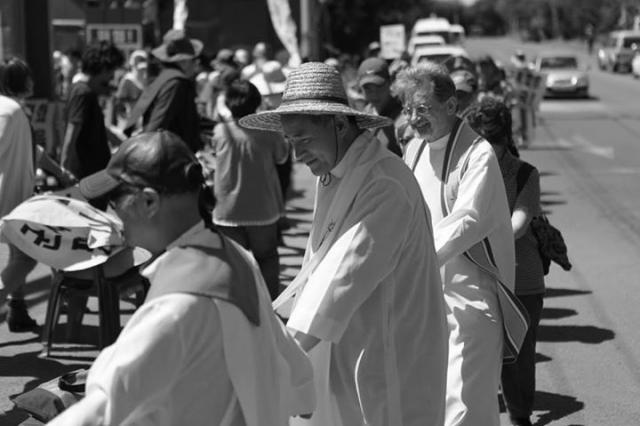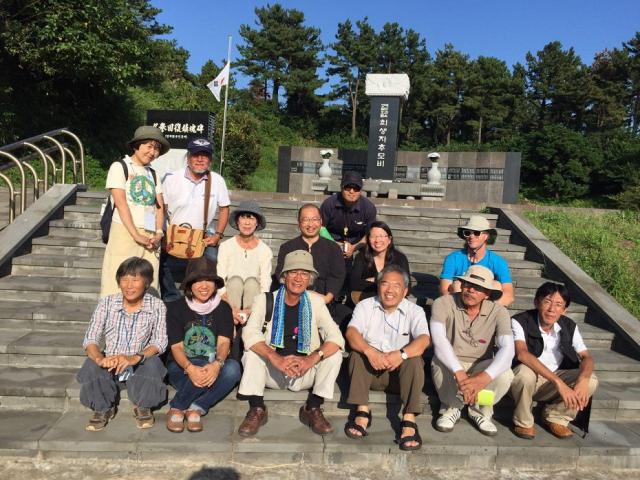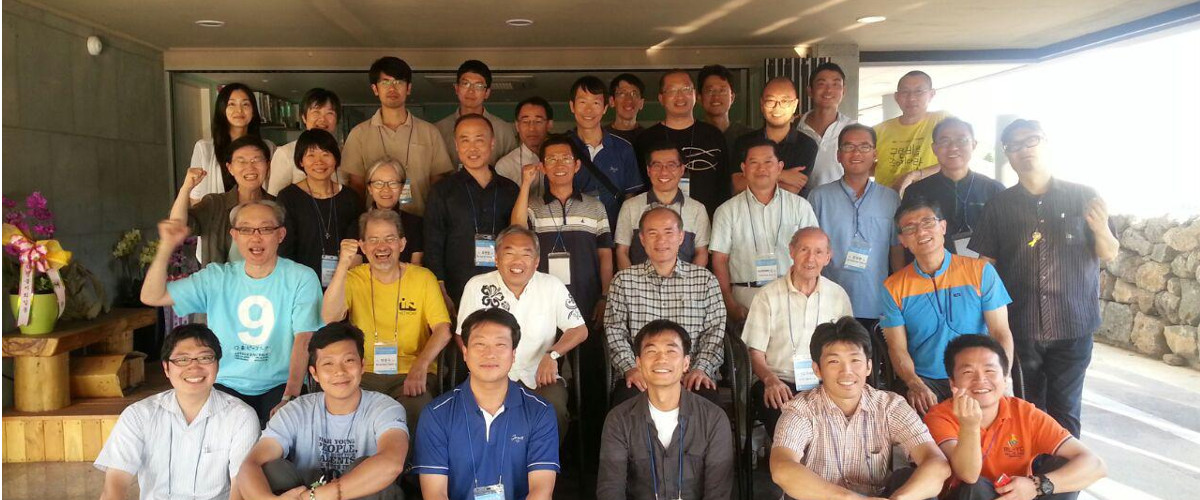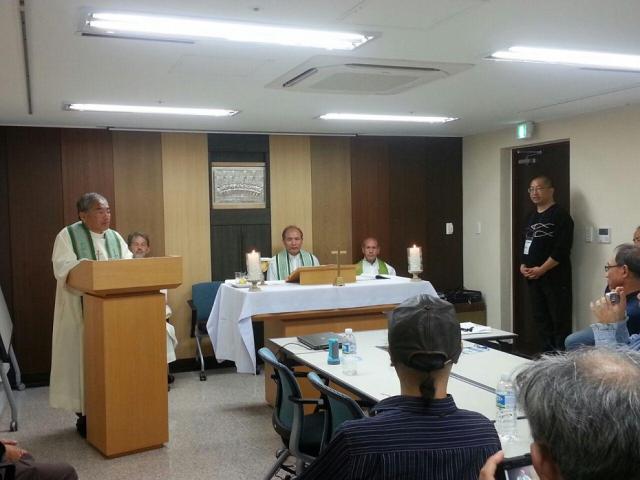The Japan and Korea Jesuit Provinces took collaboration a step further in September by holding their first plenary meeting of Jesuits and collaborators working in the social apostolate of the two provinces. The meeting took place on Jeju Island, in conjunction with the 2015 Gangjeong Peace Conference.
Gangjeong Village, on Jeju Island, in South Korea, is the site of an important ongoing confrontation over the construction of a naval base. Bishop Peter Kang, ordinary of the Jeju Diocese, has given strong open support to the villagers from the very beginning, in 2007, of their protest against the planned incursion of this base into their village, which began without the legal steps required to gain village agreement. The base threatens to destroy the villagers’ fishing and agricultural way of life. What makes it worse is that the base is not necessary for the defence of South Korea, but is meant to project American and Korean naval power into the East China Sea. The naval base is already 80 percent complete.

Fourteen Jesuits and collaborators of the Japan Province attended the Peace Conference, and 13 of them stayed for the social apostolate meeting, held on September 10, at the newly opened St Francis Peace Center, an initiative of the Jeju Catholic Diocese. Both provincials attended the peace conference and the social apostolate meeting.
In the morning the social apostolate committee chairmen, Fr Mitsunobu of Japan and Br Chu-hui Chon of Korea presented the activities of their respective social apostolates, with translation ably provided by Fr John Sang-won Lee of the Japan Province and Sr Burnadette Jeong of the Lavelle Sisters.
The social apostolates of the two provinces share a number of similarities. Each has a migrant worker apostolate, environmental initiatives focussed on blocking nuclear energy and promoting renewable energy, collaboration with citizen peace movements, accompaniment and advocacy among the urban poor, concern for labour issues, and having social centres which provide the frontline apostolates with information, analysis, and reflection. These similarities reflect the two nations’ economic similarities, their close historical connections within the Northeast Asian region, and the common Jesuit mission of option for the poor and faith that seeks justice and reconciliation with creation.
In the afternoon the participants broke into four groups with the purpose of getting to know each other better, improving collaboration, and making more specific plans. The groups focussed on the peace movement, social justice and labour ministry, anti-nuclear power and environmental concern, and migrant workers.
With regard to the peace movement, the participants hope for some exchange of personnel, for example, Regency opportunities, and cooperation on projects. In particular they see an apostolic opportunity to cooperate in educational programs for students, for example, collaboration between the St Francis Peace Center and the peace programs in Hiroshima. They urged the provincials to form a team to prepare the programs, which they feel should be based on the Gospel.
The justice and labour ministry group stressed the importance of learning how to meet the challenge of neo-liberalism, and how to increase cooperation. They suggested a team, composed of Fr Shimokawa, Fr Mitsunobu, Br Chu-hui Chon, and Fr Mun-su Park, work together to plan a practical program with clear objectives and well-targeted participants. Also, the group urged the Jesuit Research Center for Advocacy and Solidarity in Korea and the Tokyo Social Center to learn from each other through visits and exchange. It also urged the Korea Province to form a meaningful connection with the Institute of Global Concern at Sophia University.

The two provinces’ apostolate among migrants differ in that Korea is focussed on migrant labourers while Japan is engaged in the Adachi International Academy (AIA), a school for children of migrant labourers or of internationally brokered brides. The two provinces could profit from mutual visits.
More photos of the 2015 Gangjeong Peace Conference can be found here.








